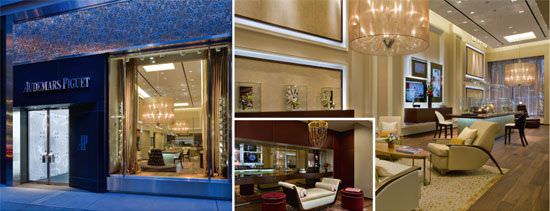
Audemars Piguet – New York
Watch brands have depended on retailers since the beginning of the watch industry as we know it. Traditionally, brands had little way of reaching end consumers directly.
Now, with the new world of media communications, the landscape has changed dramatically. Brands are on the Internet, Facebook, Twitter and anything else possible, all in hopes of capturing and keeping that elusive end consumer.
In brand-speak, brand boutiques are all about promoting the brand ‘experience’, offering an environment where the brand can be showcased ‘properly’, with the complete range of products shown in one place, perhaps exclus-ively (as most retailers don’t have the space or the inclination to display everything a brand offers). In a brand boutique for Victorinox Swiss Army, for example, watches are showcased next to knives, travel gear, luggage, clothing and more. There are not many retailers on earth that would do that.
Are the brand boutiques a threat to retailers?
It depends on who you talk to – the brands say absolutely not, while retailers hedge their bets. Some retailers partner with brands to run these brand boutiques, so for them it’s not a threat, while for retailers who have to compete with brand boutiques, they certainly are.
The chief argument from brands regarding brand boutiques is that they raise watch sales across the board, or at least they did before the crisis. This might be true in the short term, but it’s up for debate over the long term. Many retailers fear that brand boutiques ‘steal’ sales from them.
(Note: In order to be able to speak candidly, some retailers preferred to remain anonymous.)
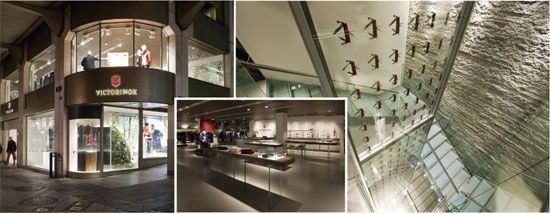
Victorinox Swiss Army – Geneva
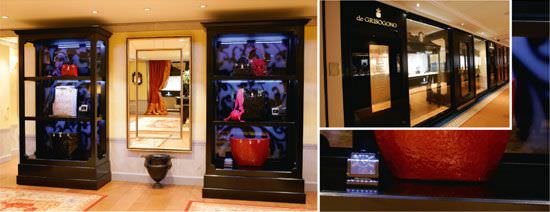
de Grisogono – Hong Kong
For brand boutiques
Patrick Frischknecht, CEO of Les Ambassadeurs in Geneva, believes that brand boutiques are good for overall watch sales. “Brand boutiques vitalize the image and the force of a brand, and therefore the sales,” he says. “Brand boutiques can stimulate sales at les Ambassadeurs, if we carry the brands. If we don’t sell the brand corresponding to a monobrand boutique, it doesn’t change our daily business. Clearly these boutiques are competition, but if a boutique can reinforce the brand, we can also benefit.”
Les Ambassadeurs is not against the idea of a retailer partnering with a brand to run a brand boutique. “Many monobrand boutiques are profitable, so this is already one good reason for a partnership with a retailer,” he adds. “Retailers have to adapt to this development which is impossible to get around, and find concepts which reply to and guarantee the future development of a multi brand retailer.”
Laurent Piccioto has been on both sides of the coin, having his own multi-brand shop in Paris, Chronopassion, and he has also partnered with various brands (Gerald Genta, Audemars Piguet, Hublot, Richard Mille, etc.) in monobrand boutiques. “But the difference is that we opened these beside our multi-brand store, which is not the same as a stand-alone boutique,” he says. “Most of the time, the success of a stand-alone monobrand shop is not guaranteed, it’s a question of the image and the power of the brand. That's why we choose the opportunity to open beside Chronopassion — you can even walk inside from one to the other.
“Communication is very important, also,” he continues. “Some brands only communicate on their boutiques, which is not fair and a good reason for discussion. The other problem is if it works, the brand will be tempted to do it themselves, and, generally, they discover that retail is a completely different job.”
Customers are the life blood of a retailer, and Piccioto is very concerned about brand attempts to capture his customers. “Our customers are our reason for living, so we can be very tough when the brands start to entertain directly these people,” he says. “To continue to compete, retailers have to focus on service, knowledge, special events, ethics and more, but sometime this is not enough.”
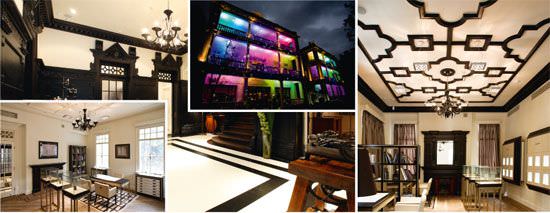
Vacheron Constantin – Shanghai
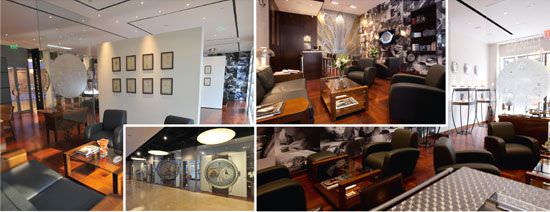
F.-P. Journe – Beijing and New York
Against brand boutiques
Some retailers feel strongly that brand boutiques are not good for their business, nor for the future of the watch industry.
“As a consumer, my feeling is that I would probably purchase something special or luxur-ious from a brand boutique because there would probably be a greater level of trust and backup,” Retailer A says. “This is unless there was possibly a discount available from an independent or I had a relationship with that particular retailer.
“As a retailer, I find it uncomfortable that my supplier is in opposition to me,” Retailer A continues. “This is the case with Cartier who recently opened a store in our city. For several years we have supported them and helped build their brand and built our stock. Then they effectively open in opposition. This fact is not negotiable from our point as all Cartier advertising before listed every independent stockist in the particular region of our country. This obviously helped promote sales. When their boutique opened, all mention of those who built and invested in the brand was dropped and the consumer was directed to the boutique.”
Retailer A acknowledges that brand boutiques can establish a brand and possibly raise sales, at least in the short term, for retailers in that region. “We all know that maintaining brand standards is vitally important but it can be done in a way that does not interfere with the independent’s business which brand boutiques do,” Retailer A says. “Now we all know that discounting destroys brands, but when your supplier begins to lure your customers after you have given your trust and cash and invested in the brand, then discounting is sometimes necessary to achieve the sale.”
Paul Sheeran, Managing Director of Paul Sheeran Jewellers in Ireland, is worried about the future when it comes to brand boutiques. “I am not convinced that stand alone brand boutiques make any difference to overall watch sales,” he says. “Some brands have their own retail strategy and this is in total competition for retailers and they are definitely a threat in smaller cities, this could be interpreted as trying to sideline retailers. They do however have a place in key locations around the world as much for marketing as for sales, such as in New York City, Geneva, Hong Kong, London's Bond Street and more. A good example is IWC’s new boutique in Hong Kong which gives the potential customer a total IWC brand experience.
“I appreciate every brand has different product ranges, lifestyle, image and appearance that they would like relayed to their markets and I think it is a retailer’s responsibility to portray this image correctly to his customers through his shop environment,” he continues. “There is also no questioning the fact that customers like a choice and that watch brands also benefit from being beside each other. So it would be my opinion that brand boutiques as part of a larger store environment make most sense as it benefits all parties. To do this successfully both retailer and brand have to understand each others’ needs.
“If I had one comment to make to brand presidents it would be to invest in your retail partners instead of stand alone boutiques,” Sheeran adds. “If I had one comment to make to retailers it would be to give brands space to invest in, hence giving them a reason not to open stand alone boutiques.”
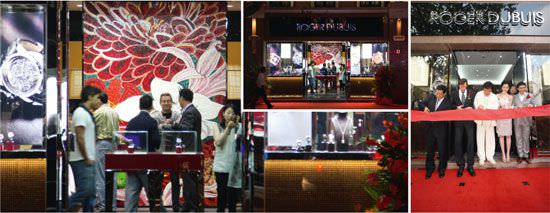
Roger Dubuis – Shanghai
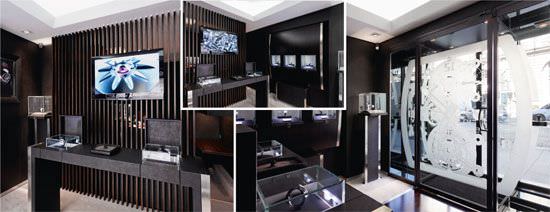
Richard Mille – Paris
On the fence
Many retailers don’t really know what to think. Retailer B, for example, is undecided about brand boutiques. “They certainly give more exposure to the brand which is good for all,” Retailer B says. “I’m not so worried about the competition, as I find that our loyal customers are loyal to us regardless. So these boutiques give them the opportunity to see more. Of course, the proximity needs to be appropriate. If I could speak directly to the brand presidents, I would tell them to try to work together with the retailer and not compete.”
The future
As consumers become harder and harder to get and keep, expect brands to go farther out of their way, and to greater lengths, to find and make them loyal – whether this means more direct customer communication, loyalty programs or something completely different, brands will continue to find ways to make a connection with the end consumer. In the past, brands may have been satisfied with retailers being their voice to the end consumer, but no more – many brands want to control all the messages that reach the end consumer.
What does the future hold? Without a doubt, you can expect more and more brands to open boutiques in major cities. So, you better be ready.
Source: Europa Star February-March 2010 Magazine Issue








